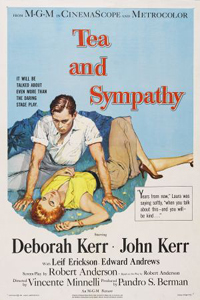Military pride and victory, battlefield suffering, religious conviction, and death in all its pervasiveness all meet in the Julien Duvivier film, La Bandera (The Flag, 1935), whose gritty screenplay Duvivier and co-scenarist Charles Spaak adapted from a novel.
The picture concerns a Frenchman called Gilieth who murders a man in Paris (“a piece of crap” he calls him) and then runs away to Barcelona, where he is unemployed and hungry. In order to survive, he joins the Spanish Foreign Legion, though not without a clandestine Spanish detective on his trail. All the legionnaires, Gilieth included, volunteer to fight in the Spanish Civil War, and an agonizing, disastrous experience it is. Can there be—is there—the acquisition of honor in this?
The French actress Annabella, who was married to Tyrone Power, has top billing in this film (she plays an Arab girl whom Gilieth marries), but she is not the star. Jean Gabin is, satisfyingly cast as the one-time murderer. . . La Bandera is now creaky and obstreperous, but also vivid and candid. I would say that at first its attitude is misanthropic, but eventually it does see Gilieth as acquiring honor as it puts a measure of faith in men on the battlefield, as it necessarily respects human risk and endurance. At least the Spanish detective seems to see Gilieth as acquiring honor (or expiation).
(In French with English subtitles)


